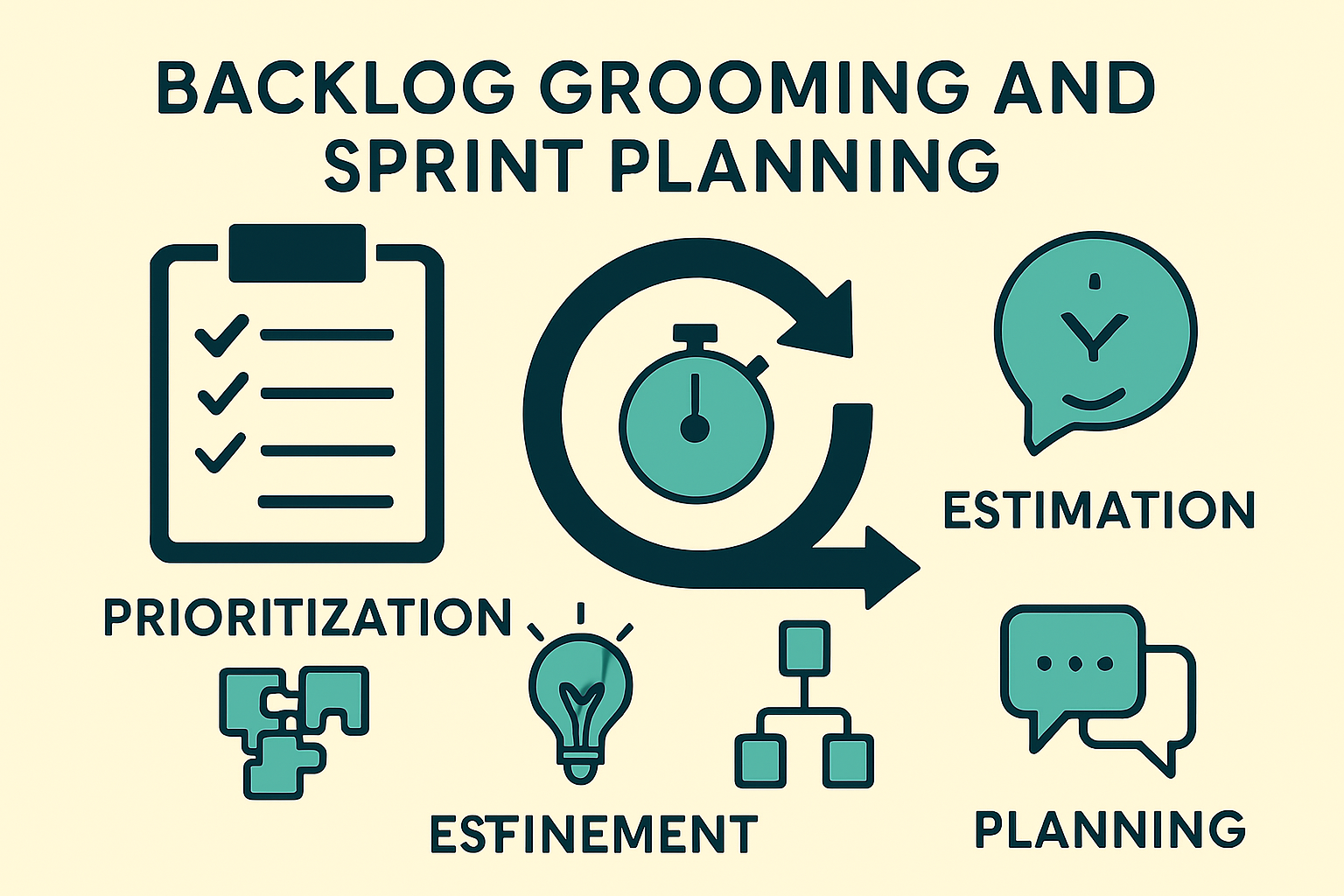Backlog grooming and sprint planning aren’t just Agile rituals—they are the keystones of delivering meaningful product value consistently. These two practices ensure your team always works on what matters most, with clarity and alignment.
What is Backlog Grooming?
Also called backlog refinement, grooming is the ongoing process of reviewing and updating the product backlog to keep it organized, prioritized, and ready for development.
Key activities:
Clarifying user stories: Ensuring acceptance criteria are defined
Estimating effort: Assigning story points with team consensus
Prioritizing: Reordering items based on business value, urgency, or dependencies
Breaking down: Splitting large or vague epics into manageable user stories
Backlog grooming typically happens once or twice per sprint and involves the product owner, tech leads, and relevant team members.
What is Sprint Planning?
Sprint planning kicks off each new sprint. It’s where the team decides what can be delivered and how it will get done.
The process:
Select user stories from the top of the refined backlog
Discuss implementation plans, edge cases, and dependencies
Estimate capacity based on team availability and velocity
Commit to a realistic sprint goal that aligns with broader objectives
This meeting sets the tone for the next sprint, ensuring focus and shared purpose.
How They Work Together
Backlog grooming prepares the raw ingredients; sprint planning is when the team decides what to cook.
Without regular grooming:
Sprint planning takes longer and may feel chaotic
Stories lack clarity, leading to poor estimates and rework
Teams lose trust in the process and delivery slows down
When grooming is consistent:
Stories are well-defined and prioritized
Sprint planning becomes focused and efficient
The team can spend more time building rather than debating scope
Best Practices
Timebox grooming sessions to 45–60 minutes max
Groom continuously, not just before sprint planning
Involve the full team periodically, especially when technical complexity is involved
Maintain a healthy backlog (1–2 sprints worth of well-groomed stories ready)
Conclusion
Backlog grooming and sprint planning are more than calendar events—they’re team habits that shape delivery quality. Grooming ensures clarity and focus; sprint planning aligns execution. When both are treated as collaborative and purposeful, your team gains rhythm, your sprints gain traction, and your product gains momentum.





